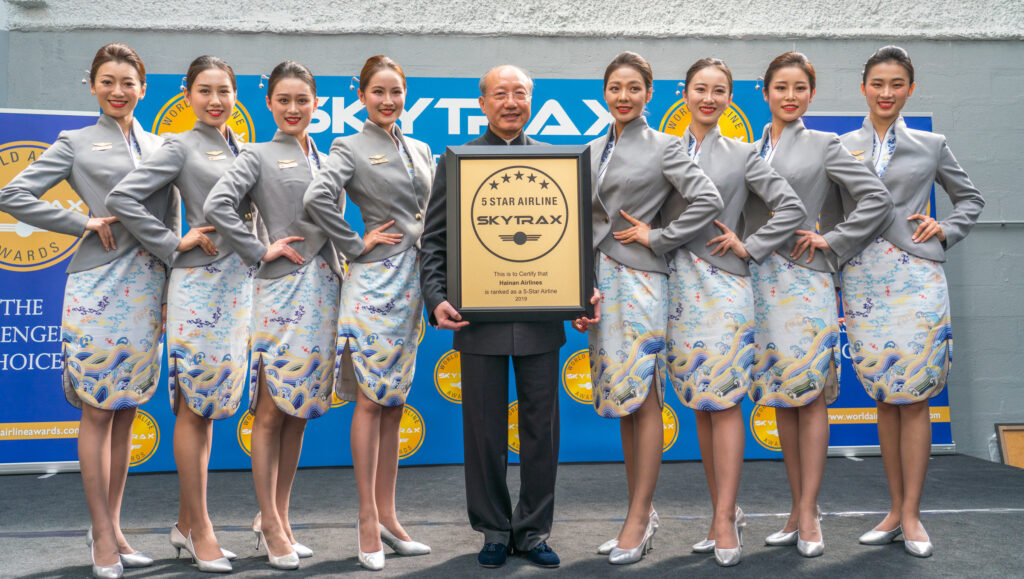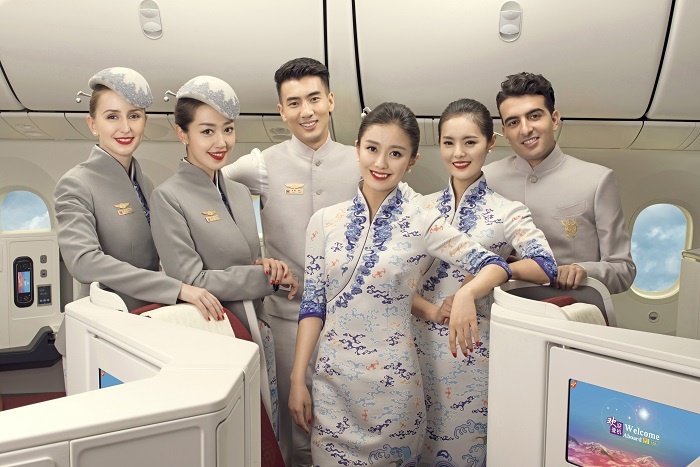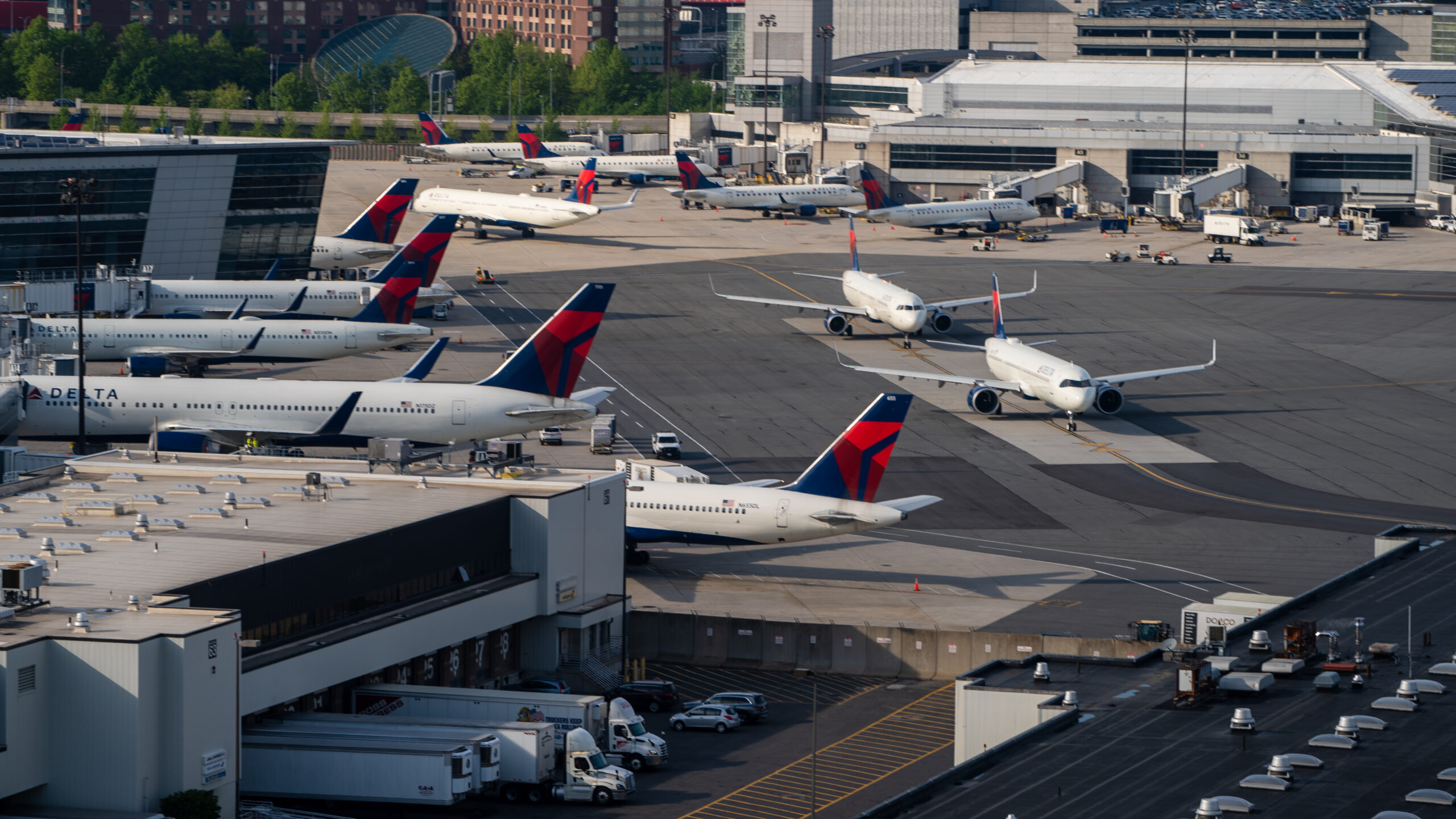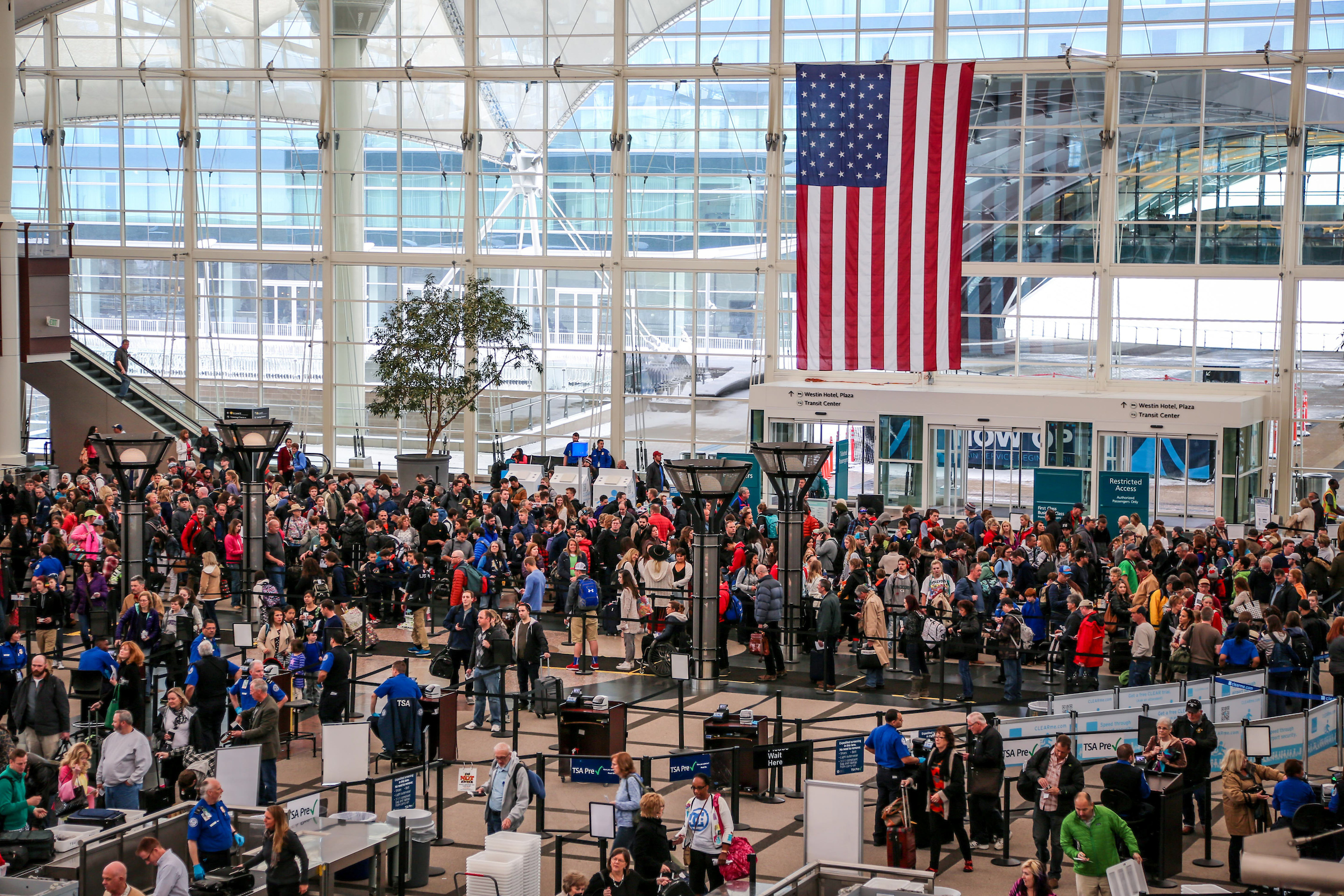Hainan Airlines from China has doubled down on its new controversial policy in which flight attendants will be suspended for being overweight following a backlash from angry customers.
From June 2023, Hainan Airlines is applying a ‘weight reference standard’ for its flight attendants, and any employee who is a certain level above the required rate will be suspended from the carrier.
As first reported by Chinese state media Global Times, each female flight attendant’s weight requirement will be calculated individually based on height. For example, if a flight attendant is of average height for a Chinese woman, at 5ft 2in (1.58 meters) tall, their ‘standard weight’ should be 105 pounds (48kg).

Photo: Chairman of HNA Group Chen Feng accepting the SKYTRAX 5-Star Airline award. Courtesy of Hainan Airlines.
However, although Global Times reported that the policy would only apply to female flight attendants, Hainan Airlines later told CNN that all cabin crew would be subject to the requirement, regardless of gender.
Under the new policy, employees will be deemed overweight and suspended from working on flights if they are 10% over the ‘standard.’ Should that be the case, they will be put on a ‘weight reduction plan’ that will be supervised by the airline.
Furthermore, any employees found to be up to 5% overweight will have their weight monitored and reviewed every month.
The controversial policy was met with outrage by both members of the public and some Hainan Airline employees. One employee told local media, “If airlines deprive overweight flight attendants of the right to work normally purely because of visual aesthetic considerations, this is definitely employment discrimination. The introduction and implementation of such regulations have no respect for flight attendants.”
Several people also took to the Chinese social media platform to voice their concerns over the new policy, with one user saying: “I just need the flight attendant to be fully qualified in professional knowledge, well-practiced in safety procedures, and wear the most suitable shoes and clothes for emergencies. Her weight is none of my business.”

Photo: Courtesy of Hainan Airlines.
However, Hainan Airlines defended their policy, telling CNN, “This is intended to advocate healthy living habits and maintain a good professional image and healthy physique by anchoring the reference target, rather than passively waiting for individual crew members’ physique to change significantly and then affect safety service work.”
While Hainan Airlines’ weight requirements seem to be a first of its kind in the aviation industry, other airlines have hit the news recently with other weight-related policies.
Air New Zealand is currently surveying its passengers, asking them to step on the weighing scales before boarding long-haul flights for the airline to gather data on the average weight of their flights, which they can use to improve safety standards. However, unlike Hainan Airlines’ policy, Air New Zealand’s scheme will strictly not be mandatory.







